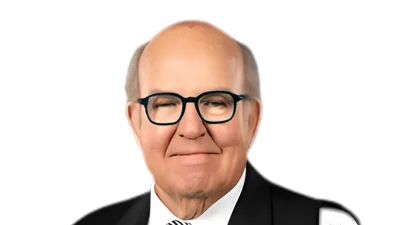Matt Everson State Director of NFIB | Official Website
Matt Everson State Director of NFIB | Official Website
The National Federation of Independent Business (NFIB) reported a rise in its Small Business Optimism Index for May, reaching 98.8, which is slightly above the 51-year average of 98. The increase was largely driven by expected business conditions and sales expectations. However, the Uncertainty Index also rose by two points to 94.
"Although optimism recovered slightly in May, uncertainty is still high among small business owners," stated NFIB Chief Economist Bill Dunkelberg. He added that while the economy faces ongoing challenges, there are more positive expectations regarding business conditions and sales growth.
In Iowa, NFIB State Director Matt Everson noted improvements in small business optimism but highlighted ongoing concerns about workforce shortages, high energy costs, and potential federal tax hikes. "Congress and lawmakers in Des Moines must continue to work to find solutions for small businesses that increase certainty and lower costs for business owners who will reinvest in their employees and communities," Everson said. He suggested making the Small Business Deduction permanent as a starting point.
Key findings from the report include a net 1% of owners viewing current inventory stocks as "too low," marking the highest reading since August 2022. Expectations for better business conditions increased by ten points to a net 25%, while expectations for higher real sales volumes rose by eleven points to a net 10%.
Capital outlay plans over the next six months reached their highest level this year at 22%. Meanwhile, labor quality concerns decreased slightly to 16%, though taxes remained the top issue for small business owners at 18%.
The NFIB's monthly jobs report indicated that job openings remain unfilled due to a lack of qualified applicants. A seasonally adjusted net 12% of owners plan to create new jobs within three months.
Labor costs have risen as an issue for businesses, with reports increasing by one point to 9%. Despite this, compensation increases were less frequent compared to April.
Spending on capital outlays declined slightly with only 56% reporting such expenditures in recent months. Among those investing, most focused on new equipment or vehicles.
Sales issues persisted with poor sales being reported as a top problem by 9% of owners consistently over five months. Inventory gains remained unchanged from April at a net negative rate.
Plans for price hikes saw an uptick with a net 31% planning increases in May. Profit trends were negative overall but varied based on factors like sales volumes and material costs.
Financing difficulties were reported by some owners with interest rates posing challenges; however, borrowing remains regular for about one-quarter of respondents.
Overall expansion plans improved marginally but remain historically low despite slight optimism recovery seen across other areas like taxes and regulations impacting businesses' operational environment.
The NFIB Research Center has been gathering data on Small Business Economic Trends since the late twentieth century through surveys conducted among its membership base every month.




 Alerts Sign-up
Alerts Sign-up